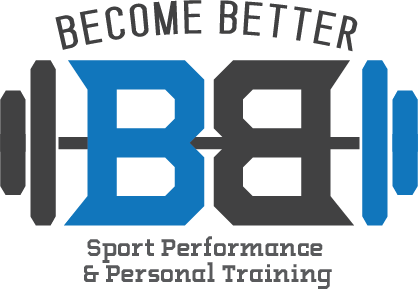Four Good Nutritional Supplements For Workouts
There are so many supplements available today, only a few of which are worth your money. The labels of just every supplement are filled with claims about building muscle, burning fat, or enhancing performance. It can be hard to know what’s based in actual science and what is silly BS. The waters get even further muddied any time you walk into a supplement store such as GNC or Nutrishop, because the salesperson will probably be trying to sell you on the newest fad supplement by telling you things that sound too good to be true. It’s not their fault as most of these salespeople are not formally educated in nutrition or exercise science, and they’re just regurgitating the sales-pitch their managers gave to them. I hope this article will educate you a bit on what supplements you should consider using and how they work. In the coming weeks we will add to this list and go into more detail on each along with covering what supplements may be a complete waste of money. Here are four supplements we recommend.
Creatine Monohydrate
Creatine is a natural substance that can be found in your muscles, brain, and kidneys. It is responsible for producing energy during high intensity, short duration activities such as lifting, sprinting, and jumping. Supplementing with creatine gives you a boost in muscular strength and power during activities of this nature. It also improves your intramuscular hydration. The only negative side effects that have been reported are bloating and stomach discomfort, but these are rare and likely occur when people take too much at a time. Creatine monohydrate is one of the only supplements that has been proven time and time again to do exactly what it is supposed to do, and is therefore worth your money if you’re looking to improve your performance in the gym or in your sport. Don’t worry about getting the latest “fancy creatine.” Stick to the cheapest, most researched, Creatine Monohydrate.
Caffeine
Caffeine has multiple performance enhancing effects, and has been very thoroughly researched. Some well documented benefits of supplementing with caffeine include a quick energy boost, improved mental focus, improved muscular endurance, and improved memory. Some other things that caffeine may or may not do (the research is mixed) include increased fat burning and increased muscular strength and power. Caffeine can be found in coffee, tea, energy drinks, pre-workout supplements, and in a pure powdered or pill form. Coffee and pure caffeine supplements are probably the cheapest options. Most pre-workout supplements are just caffeine mixed with some other overpriced junk that is not well researched or not yet proven to be effective. Like creatine, caffeine has been studied for years and the overwhelming majority of the evidence suggests that it is worth your money if you’re looking for a small boost in the gym.
Whey Protein
Whey protein is a quick, effective, and relatively cheap way to get some extra protein into your diet. Whey is a liquid byproduct of cheese production that is then turned into a powder and flavored for use as a supplement. It is composed of almost 100% protein, with negligible carbohydrate and fat content which makes it a great low-calorie, high protein snack. Since Whey is digested very quickly it is an ideal supplement before or right after workouts in addition to right away in the morning when you want to spike your protein levels (increase protein synthesis) quickly. Whey protein is superior to plant proteins because it contains all of the essential amino acids in their correct amounts and ratios. In order to get the same amount of EAAs in a plant protein, you need to double the serving size which in turn doubles the amount of calories. If you can’t have whey, then Pea Protein would be the best alternative. Casein Protein could also have a place on your shelf as a slow digesting protein opposed to the fast whey, but whey should be your first go-to protein supplement. We will talk more in the future about Casein.
Carbohydrate Supplements
Carbohydrate supplements can be beneficial for intra-workout use or after workouts. They come in powdered forms under different names including dextrose and maltodextrin, but gatorade and gummy candy work just the same and may be cheaper. If you have a long workout (2+ hours) or you’re working out multiple times per day, you’re likely depleting your body’s carbohydrate stores which may make you fatigue quicker and decrease your performance. Replenishing your carbohydrates during and between workouts will assure that you’re not running out of energy and that your performance stays consistent. If you’re in the gym for long periods at a time or you work out multiple times per day, it is probably worth consuming some intra workout carbs. If you’re only working out for 45 minutes to an hour at a time, it’s less important to worry about. Having extra carbs with protein after your workouts can also help drive that protein into the muscles better than protein could alone. This can be accomplished easily with food and not a supplement too. It is also important to note that you need to remember that carbohydrates have caloric value, so you still need to keep that in mind as you try to stay within that number too.
Conclusion:
These are 4 of the top, most effective supplements to consume if you are trying to BECOME BETTER in the gym. Fortunately, these are also three of the cheapest supplements out there. We will go into more detail on how to use these three supplements in the future and give some brand recommendations that we likely use.

